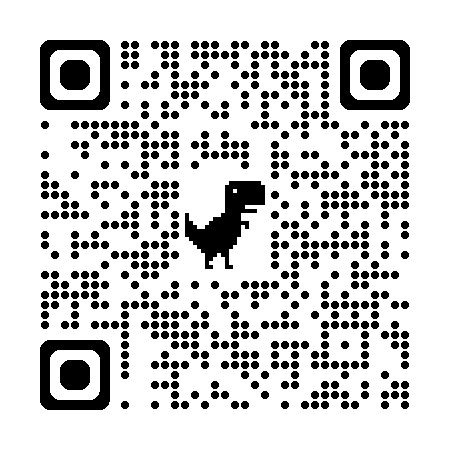08
2023-11
Provisions of the Supreme People's Court on Several Issues concerning the Application of Law in the Trial of Civil Cases of Patent Rights Disputes Related to Drugs Applied for Registration (Issued 2021)
Issued by: Supreme People's Court
Issue number: Fashi [2021] No. 13
Issue Date: 2021.07.04
Implementation Date: 2021.07.05
Announcement of the Supreme People's Court of the People's Republic of China
The Provisions of the Supreme People's Court on Several Issues Concerning the Application of Law in the Trial of Civil Cases of Patent Rights Disputes Related to Drugs Applied for Registration, as adopted at the 1839th meeting of the Judicial Committee of the Supreme People's Court on May 24, 2021, are hereby issued and shall come into force on July 5, 2021.
Supreme People's Court
July 4, 2021
Provisions of the Supreme People's Court on Several Issues Concerning the Application of Law in the Trial of Civil Cases of Patent Disputes Related to Drugs Applied for Registration (Adopted at the 1839th Meeting of the Judicial Committee of the Supreme People's Court on May 24, 2021, and Effective from July 5, 2021, Fa Shi [2021] No. 13) In order to correctly hear civil cases of patent disputes related to drugs applied for registration, in accordance with the the People's Republic of China Patent Law, the People's Republic of China Civil Procedure and other relevant laws, the present Provisions are formulated in light of the actual situation of intellectual property trial.
Article 1 A case of first instance filed by a party in accordance with Article 76 of the Patent Law to confirm whether it falls within the scope of patent protection shall be under the jurisdiction of the Beijing Intellectual Property Court.
Article 2 The term "relevant patents" as mentioned in Article 76 of the Patent Law refers to the patents to which the specific convergence measures of the relevant administrative departments of the State Council on the settlement of patent disputes at the stage of drug marketing license examination and approval and drug marketing license application (hereinafter referred to as the convergence measures) apply. The term "interested party" as mentioned in Article 76 of the Patent Law refers to the licensee of the patent and the holder of the relevant drug marketing license mentioned in the preceding paragraph.
Article 3 Where the patentee or interested party sues in accordance with Article 76 of the Patent Law, the following materials shall be submitted in accordance with the provisions of Article 119, paragraph 3, of the Civil Procedure Law:
(I) the relevant patent information registered in the platform set up by the relevant administrative department of the State Council according to the convergence measures, including the patent name, patent number, relevant claims, etc;
(II) the relevant information of the drug application for registration publicized in the platform set up by the relevant administrative department of the State Council according to the convergence method, including the drug name, drug type, registration category, and the corresponding relationship between the drug application for registration and the listed drug involved;
The four types of statements made by the applicant for (III) drug marketing license according to the convergence method and the basis for the statement. The applicant for drug marketing license shall, within the defense period of the first instance, submit to the people's court a copy of the necessary technical information declared to the national drug review agency and corresponding to the determination of whether it falls within the scope of protection of the relevant patent right.
Article 4 If the patentee or interested party fails to file a lawsuit in the people's court within the time limit specified in the convergence measures, the applicant for drug marketing license may file a lawsuit in the people's court, requesting confirmation that the drug applied for registration does not fall within the scope of protection of the relevant patent right.
Article 5 If a party claims that it should not accept the lawsuit referred to in Article 76 of the Patent Law or applies for suspension of the lawsuit on the ground that the administrative department for patent under the State Council has accepted the request for administrative ruling referred to in Article 76 of the Patent Law, the people's court shall not support it.
Article 6 If a party, after filing a lawsuit in accordance with Article 76 of the Patent Law, applies for suspension of the lawsuit on the grounds that the patent administration department of the State Council has accepted the request for invalidation of the relevant patent right, the people's court will generally not support it.
Article 7 If the applicant for drug marketing license claims to have the circumstances specified in Article 67 and Item 2 of Article 75 of the Patent Law, the people's court may, after examination, decide to confirm that the relevant technical scheme of the drug applied for registration does not fall within the scope of protection of the relevant patent right.
Article 8 The parties shall have the obligation to keep confidential the trade secrets or other business information that needs to be kept confidential, and if they disclose or use or allow others to use them outside the litigation activities, they shall bear civil liability in accordance with the law. If the circumstances specified in Article 111 of the Civil Procedure Law are constituted, the people's court shall deal with them in accordance with the law.
Article 9 If the drug-related technical plan submitted by the applicant for drug marketing license to the people's court for application for registration is obviously inconsistent with the technical data declared to the national drug review agency, and hinders the people's court from hearing the case, the people's court shall follow the Civil Procedure Law. The provisions of Article 111 shall be dealt.
Article 10 Where the patentee or interested party applies for act preservation in the litigation referred to in Article 76 of the Patent Law, and requests that the applicant for drug listing license be prohibited from carrying out the acts specified in Article 11 of the Patent Law within the validity period of the relevant patent right, the people's court shall deal with it in accordance with the relevant provisions of the Patent Law and the Civil procedure Law; the people's court shall not support the request to prohibit the application for drug listing or review and approval.
Article 11 In a lawsuit against the same patent right and the drug applied for registration for infringement of patent right or confirmation of non-infringement of patent right, the people's court generally supports the party's claim to determine whether the technical scheme of the drug involved falls within the scope of protection of the relevant patent right according to the effective judgment of the lawsuit referred to in Article 76 of the Patent Law. However, unless there is evidence to prove that the technical scheme of the accused infringing drug is inconsistent with the relevant technical scheme of the drug applied for registration or the cause of the new claim is established.
Article 12 If the patentee or interested party knows or should know that the patent right he claims should be declared invalid or the relevant technical scheme of the drug applied for registration does not fall within the scope of patent protection, and still files a lawsuit or requests an administrative ruling as mentioned in Article 76 of the Patent Law, the applicant for drug marketing license may file a lawsuit for damages with the Beijing intellectual property Court.
Article 13 The service of the people's court to the contact person, mailing address, e-mail, etc. posted on the platform set up by the relevant administrative department of the State Council in accordance with the convergence method shall be deemed to be effective service. After the parties have submitted a confirmation of the address for service to the people's court, the people's court may also serve the service at the address specified in the confirmation.
Article 14 These Provisions shall come into force as of July 5, 2021. If the relevant judicial interpretations previously issued by the Court are inconsistent with these Provisions, these Provisions shall prevail.
undefined





